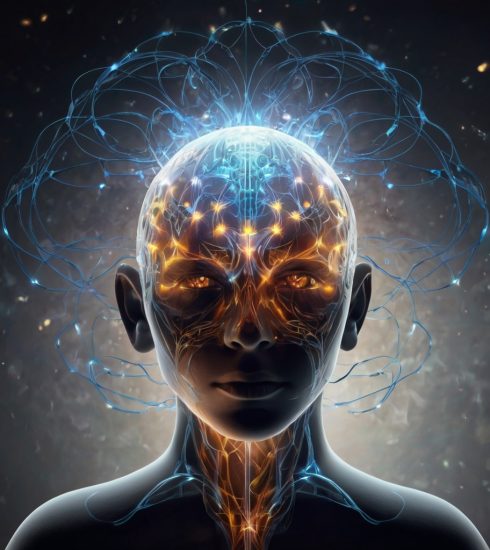Exploring the Power of Beliefs and Perception in Creating Reality
 This blog delves into the impact of beliefs and perception on shaping our reality.
This blog delves into the impact of beliefs and perception on shaping our reality.
Understanding the Influence of Beliefs
Our beliefs play a significant role in shaping our lives and can have a profound impact on our well-being. From influencing our perceptions to affecting our behaviors, beliefs are powerful forces that guide us through our daily experiences. In this blog post, we will delve into the various ways in which beliefs influence our reality and explore the potential for positive change by altering our beliefs.
Beliefs Shape Our Reality and Impact Our Health
Beliefs act as the lens through which we view the world. They color our perceptions, shaping how we interpret events and situations. For example, someone who holds a belief that they are unworthy may see themselves as failures even in the face of success. This in turn can lead to stress, anxiety, and other negative emotions that can impact their health.
Research has shown that our beliefs can have a direct impact on our physical health. The placebo effect is a prime example of how beliefs can influence our bodies. When a person firmly believes that a treatment will work, their symptoms may improve, even if the treatment itself is inert. This demonstrates the power of belief in influencing our physiological responses.
Changing Beliefs Can Lead to Healing Through the Placebo Effect
The placebo effect highlights the remarkable connection between the mind and body. By altering our beliefs, we can harness this phenomenon to promote healing and well-being. When individuals shift their mindset and cultivate positive beliefs about their health and recovery, they may experience actual improvements in their condition.
Studies have shown that patients who hold positive expectations about their treatment tend to respond better to medical interventions. By tapping into the placebo effect, healthcare providers can enhance the efficacy of therapies and support patients in their healing journey.
Beliefs Are Subconscious and Based on Past Experiences
Many of our beliefs operate at a <a href="https://blogify.ai/url?utm_source=65ae70f0c974ba1753cae61d&utm_medium=65d63d24d26ee967f941222f&ref=https://click.linksynergy.com/link?id=/7KMM9AWdfA&offerid=1074530.4621900&type=2&murl=https%253A%252F%252Fwww.udemy.com%252Fcourse%252Fcoaching-growth-success%252F” target=”_blank”>subconscious level, shaped by our past experiences, upbringing, and cultural influences. These deeply ingrained beliefs act as the foundation upon which we make sense of the world. They may guide our decisions, behaviors, and interactions without us even realizing it.
Understanding the origins of our beliefs is key to unlocking their hold over us. By exploring our past experiences and identifying the core beliefs that drive our actions, we can begin the process of challenging and reshaping them for a more empowering reality.
Beliefs Can Be Altered to Create a More Positive Reality
While beliefs may seem fixed, they are not set in stone. With awareness and intention, we can actively work to change our beliefs and cultivate a more positive reality. By adopting a growth mindset and embracing new perspectives, we can expand our possibilities and break free from limiting beliefs.
Practices such as cognitive behavioral therapy (CBT) and mindfulness can help individuals challenge negative beliefs and replace them with healthier alternatives. By reframing our thoughts and beliefs, we can transform our outlook on life and open ourselves up to new opportunities for growth and fulfillment.
Beliefs Influence Our Perceptions and Behaviors
Our beliefs shape not only how we see the world but also how we engage with it. They serve as a filter through which we process information, influencing our attitudes, <a href="https://blogify.ai/url?utm_source=65ae70f0c974ba1753cae61d&utm_medium=65d63d24d26ee967f941222f&ref=https://click.linksynergy.com/link?id=/7KMM9AWdfA&offerid=1074530.4376228&type=2&murl=https%253A%252F%252Fwww.udemy.com%252Fcourse%252Flearn-reiki-level-second-course-for-personal-transformation%252F” target=”_blank”>decisions, and responses. For instance, someone who believes they are capable and deserving of success is more likely to take risks and pursue their goals with confidence.
By becoming aware of the beliefs that drive our actions, we gain greater control over our lives. Through self-reflection and introspection, we can uncover unconscious beliefs that may be holding us back and replace them with empowering beliefs that align with our aspirations.
In conclusion, understanding the influence of beliefs is a crucial step in unlocking our potential for growth and transformation. By recognizing the power of our beliefs, we can consciously choose to shape a reality that aligns with our highest aspirations and values.
Exploring the Power of Perception
Perception is a powerful force that shapes our understanding of the world around us. It is the lens through which we interpret reality, guiding our thoughts, emotions, and actions. Our perceptions are not fixed; rather, they are subjective and malleable, capable of being altered and transformed. In this exploration of the power of perception, we delve into how perceptions influence our lives and how we can consciously change and enhance them.
Perceptions are Subjective and Can be Altered
Our perceptions are unique to each individual, influenced by our experiences, beliefs, values, and biases. What one person perceives as beautiful, another may see as ordinary. Our perception of a situation can vary based on our current mood, past experiences, and cultural background. Understanding that perceptions are subjective allows us to recognize that they are not always accurate representations of reality.
However, the subjective nature of perception also offers an opportunity for growth and change. By being aware of our biases and preconceived notions, we can begin to challenge and alter our perceptions. This process requires introspection, empathy, and an openness to new perspectives. Through self-reflection and dialogue with others, we can expand our understanding of the world and foster a more nuanced perception of reality.
Changing Beliefs Can Lead to a Shift in Perception
Our beliefs play a significant role in shaping our perceptions. If we hold rigid beliefs that are resistant to change, our perceptions may remain limited and constrained. However, by examining and revising our beliefs, we can initiate a shift in our perception of the world. This process of cognitive restructuring involves challenging outdated beliefs, exploring alternative viewpoints, and being open to new ideas.
Changing our beliefs requires a willingness to question our assumptions and engage in critical thinking. By recognizing the impact of our beliefs on our perceptions, we empower ourselves to create positive change. As we cultivate a more flexible and open-minded approach to our beliefs, we allow for the possibility of transformation and growth in our perception of reality.
Perception Influences How We Interact with the World
Our perception of the world has a profound influence on how we engage with others and navigate our environment. If we perceive a situation as threatening, we may respond with fear or defensiveness. Conversely, if we perceive a situation as an opportunity for growth, we may approach it with curiosity and enthusiasm.
By becoming conscious of our perceptions and evaluating their impact on our behavior, we can make intentional choices about how we interact with the world. Cultivating a positive and empowering perception can lead to more meaningful connections, enhanced problem-solving skills, and a greater sense of well-being. Our perception shapes not only our internal experiences but also our external realities, influencing the outcomes we attract and the relationships we cultivate.
Perception Can be Changed Through Conscious Awareness
Conscious awareness is the key to transforming our perception. By bringing mindful attention to our thoughts, emotions, and beliefs, we can observe how our perception colors our experience of reality. Through practices such as mindfulness meditation, journaling, and therapy, we can develop a deeper awareness of our cognitive patterns and unconscious biases.
When we approach our perception with curiosity and non-judgmental awareness, we create space for growth and change. We can challenge automatic thoughts, reframe negative beliefs, and choose more empowering interpretations of our experiences. By increasing our conscious awareness, we lay the foundation for a more intentional and transformative perception of reality.
Meditation Helps in Becoming More Conscious of Perceptions
Meditation is a powerful tool for enhancing our awareness of perceptions and cultivating a sense of presence. Through mindfulness practices, we learn to observe our thoughts and emotions without attachment, gaining insight into the workings of our mind. Meditation allows us to develop a greater sense of clarity, focus, and equanimity, enabling us to respond to situations with wisdom and compassion.
By integrating meditation into our daily routine, we can deepen our understanding of how our perceptions influence our well-being. Meditation helps us create a mental space where we can observe our thoughts and feelings without being consumed by them. This practice fosters a sense of inner peace and resilience, allowing us to navigate life’s challenges with grace and insight.
In conclusion, the power of perception lies in its ability to shape our reality and influence our experiences. By recognizing the subjective nature of perception, challenging our beliefs, and cultivating conscious awareness, we can expand our understanding of the world and enhance our well-being. Through practices such as meditation, we can become more attuned to our perceptions and cultivate a more empowering and transformative relationship with reality.
The Impact of Stress on Reality
Stress Can Lead to Contraction and Disease
Stress is a natural response in the body that can be triggered by various factors such as work pressures, relationship issues, or financial concerns. When we experience stress, our body releases hormones like cortisol and adrenaline, preparing us for the “fight or flight” response. While this response can be beneficial in certain situations, prolonged or chronic stress can have detrimental effects on our health.
Research has shown that chronic stress can lead to the contraction of muscles, making the body more susceptible to aches, pains, and even serious conditions like tension headaches, muscle stiffness, and digestive issues. Additionally, prolonged stress weakens the immune system, making us more prone to illnesses and diseases.
Continuous Stress Affects Our Health Negatively
The impact of stress on our physical health is profound. Continuous stress can manifest in various ways, including high blood pressure, heart disease, obesity, and even diabetes. When we are under constant stress, our body is in a state of high alert, which can disrupt the balance of hormones and neurotransmitters, leading to a range of health problems.
Moreover, stress can have a significant impact on our mental health as well. It can contribute to anxiety disorders, depression, and insomnia, affecting our overall well-being and quality of life. Therefore, it is essential to address and manage stress effectively to prevent its adverse effects on both our physical and mental health.
Stress Is Often Triggered by Thought Alone
It is fascinating to note that stress is not merely a physical response but is often triggered by our thoughts and perceptions. The way we interpret and react to events and situations can significantly influence our stress levels. Negative thinking patterns, constant worry, and irrational beliefs can all contribute to escalating stress levels.
Learning to recognize and challenge these negative thought patterns is crucial in managing stress effectively. By practicing mindfulness and cultivating a positive outlook, we can reduce the impact of stress on our mind and body. Techniques such as cognitive-behavioral therapy and relaxation exercises can help us reframe our thoughts and develop healthier coping mechanisms.
Breaking Free from Negative Emotions Is Key to Self-Love
Self-love and self-care play a vital role in managing stress and promoting overall well-being. Often, stress is accompanied by negative emotions such as self-doubt, guilt, and fear. These emotions not only exacerbate our stress levels but also hinder our ability to practice self-compassion and self-care.
Breaking free from negative emotions involves acknowledging and accepting our feelings without judgment. It entails practicing self-compassion, forgiveness, and gratitude towards ourselves. By nurturing a positive relationship with our inner self, we can cultivate a sense of self-love that acts as a protective shield against stress and negativity.
Meditation Helps in Managing and Reducing Stress Levels
One of the most effective ways to manage stress is through meditation. Meditation is a mindfulness practice that involves focusing the mind on the present moment, allowing us to observe our thoughts and emotions without getting caught up in them. This awareness helps us create distance from stressful thoughts and access a state of inner calm and balance.
Research has shown that regular meditation can reduce stress levels, lower blood pressure, and improve overall well-being. By incorporating meditation into our daily routine, we can train our minds to respond to stressors more effectively and cultivate a sense of inner peace and resilience. Whether through guided meditation, mindful breathing exercises, or visualization techniques, meditation offers a powerful tool for managing and reducing stress.
Overall, the impact of stress on our reality is profound and multifaceted. By understanding the detrimental effects of stress on our physical and mental health, as well as recognizing the role of thoughts and emotions in triggering stress, we can take proactive steps to manage and reduce stress levels. Through practices like meditation, self-love, and cognitive reframing, we can create a harmonious balance within ourselves and cultivate a sense of well-being that transcends the challenges of stress.
Embracing Self-Love and Joy
Welcome to a journey of self-discovery and empowerment through the essence of self-love and joy. In this section, we will delve into the profound impact that self-love has on our overall well-being and the creation of a positive reality. Let’s explore how healing, joy, and empowerment intertwine with the core of our being.
Healing Through Self-Love
The placebo effect, often misunderstood as mere deception, holds a significant truth – the power of belief and self-love in healing. When we genuinely love and care for ourselves, our minds and bodies respond positively. This self-nurturing attitude can trigger profound healing responses, both physically and emotionally. Embracing self-love creates a nurturing environment within us that promotes overall well-being.
True Self-Love Leads to Joy
True self-love goes beyond superficial affirmations; it is a deep appreciation and acceptance of oneself. This level of self-love naturally leads to joy as it radiates from within. Joy is not just an emotion but a state of being that signifies creation and expansion in our lives. When we love ourselves authentically, joy becomes a constant companion in our journey.
Self-Love and Positive Reality
Self-love acts as a magnet for positivity and abundance. By nurturing a loving relationship with ourselves, we attract positive experiences and create a reality filled with joy and contentment. Embracing self-love is pivotal in shaping our perceptions and interactions with the world, ultimately manifesting a more positive and fulfilling reality.
Empowerment in the Present Moment
Bringing our awareness back to the present moment is a powerful tool in cultivating self-love. By grounding ourselves in the now, we empower ourselves to make conscious choices that align with our well-being and joy. The present moment is where true empowerment lies, allowing us to let go of past burdens and future worries, and embrace the self with compassion and authenticity.
TL;DR
In the realm of self-love and joy, healing through the placebo effect thrives on self-nurturing beliefs. True self-love intertwines with joy, creating a positive reality. Grounding ourselves in the present moment empowers authentic self-love, leading to a life filled with healing, joy, and positivity.




